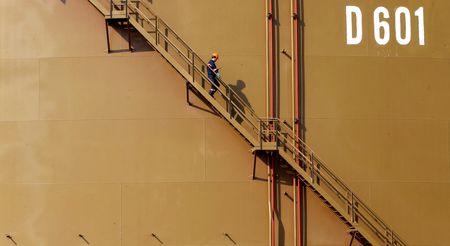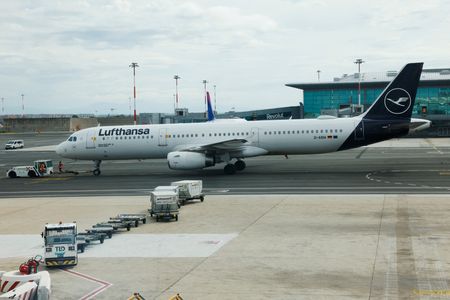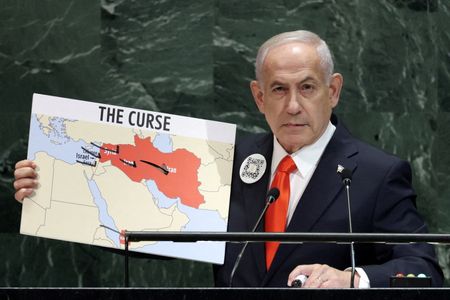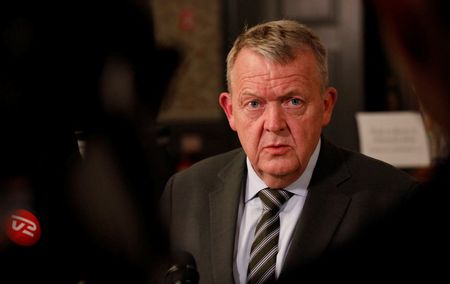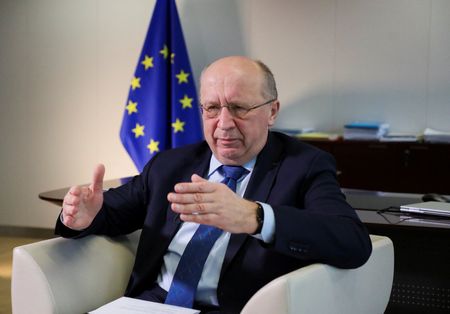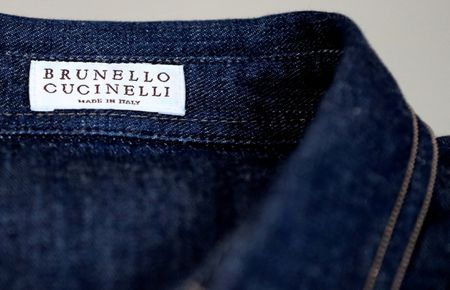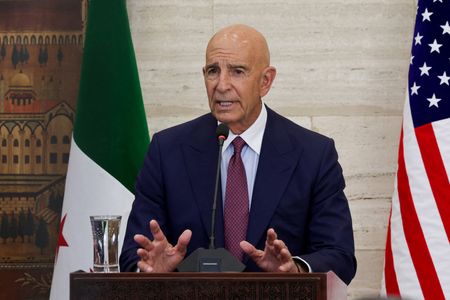MOSCOW (Reuters) -Imports of Russian oil to Turkey, Europe’s largest buyer of fuel from Moscow, have declined due to competition from other oil grades, sanctions, and as U.S. President Donald Trump urges allies to stop buying Russia’s oil to cripple its war efforts.
Frustrated by Russia’s refusal to halt fighting in Ukraine, Trump has called on Europe to halt Russian oil and gas purchases, a key source of Moscow’s revenue.
On Thursday, after two hours of talks with Turkish President Tayyip Erdogan, Trump said he believed Ankara would agree to his request to stop buying Russian oil and that he may lift U.S. sanctions on Turkey.
TURKEY AND RUSSIA HAVE FORGED CLOSE RELATIONS
A shift in Turkey’s stance is not guaranteed, however, as Erdogan and Russian President Vladimir Putin have forged close relations in recent years.
Kremlin spokesman Dmitry Peskov said on Friday it was up to Turkey to decide who it trades with.
“It is a sovereign state that decides for itself in which areas to cooperate with us. And if certain types of trade in certain goods are deemed advantageous to the Turkish side, then the Turkish side will continue to do so,” he said.
Imports of Russian oil to Turkey have fallen in September to the lowest since April, two traders said and LSEG data showed.
Turkey is the second-largest importer of seaborne Russian Urals crude after India, according to LSEG data. It has not joined Western sanctions against Russia but complies with international laws and restrictions.
Turkey bought 1.6 million tons of Urals in June, the most since May 2024, LSEG data showed.
But imports are set to fall to around 1.2 million tons this month, according to LSEG data as of Friday.
Turkey’s and Russia’s energy ministries didn’t immediately reply to requests for comment.
Turkey cut Russian oil imports at the start of the year as refiner Tupras paused purchases after the price of Urals exceeded the Western-imposed price cap of $60 per barrel.
Urals held above the price cap until April, when it fell back below it and Tupras resumed buying.
In July, the European Union and the UK lowered the price cap for Urals to about $47.60 per barrel, further complicating the purchases.
(Reporting by Reuters in MOSCOW. Additional reporting by Can Sezer in ISTANBUL. Editing by Mark Potter)

